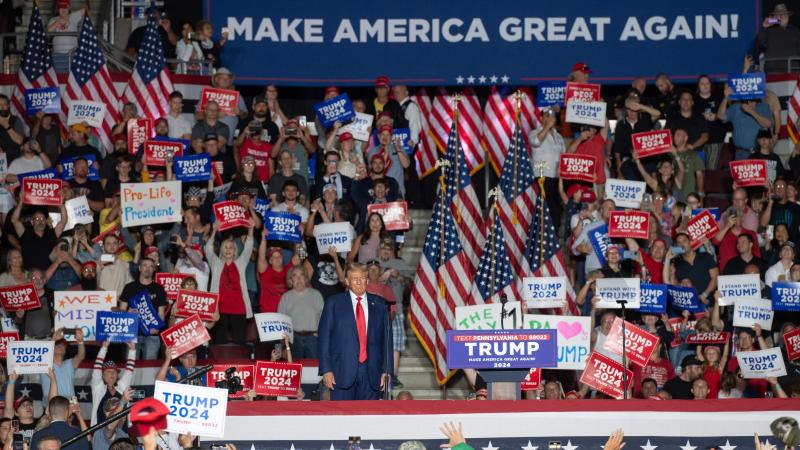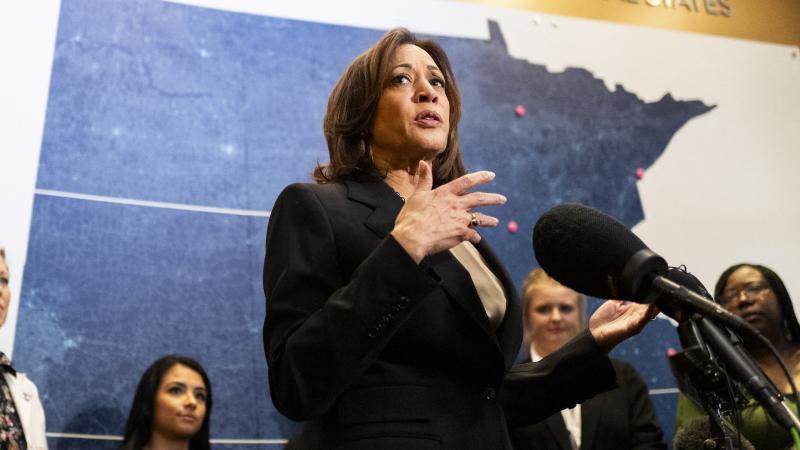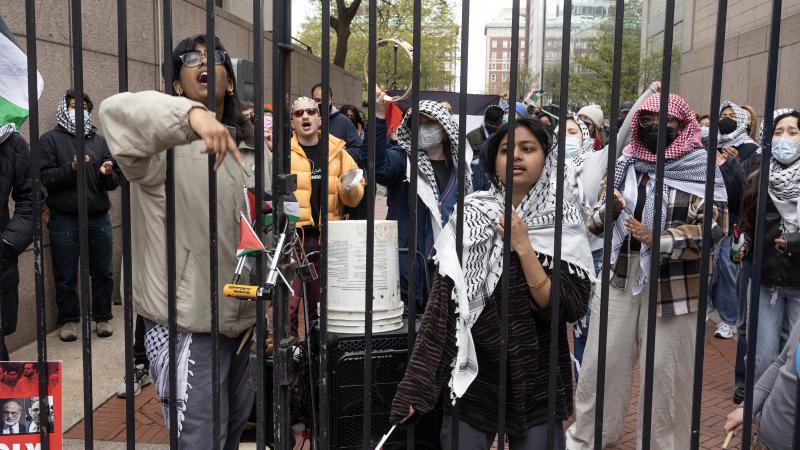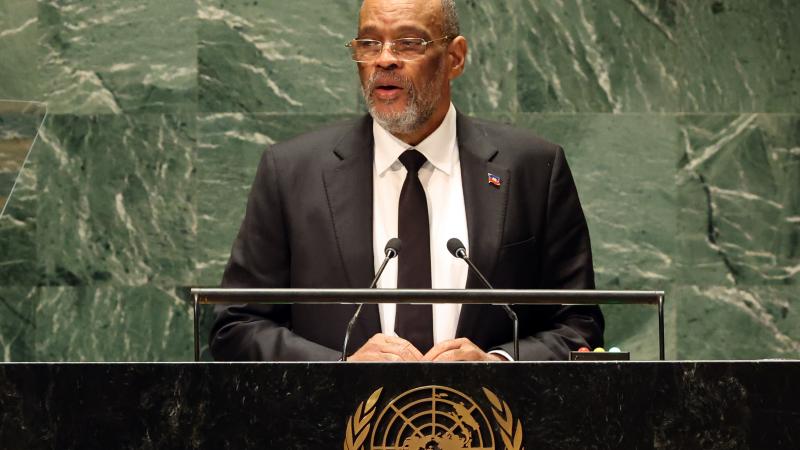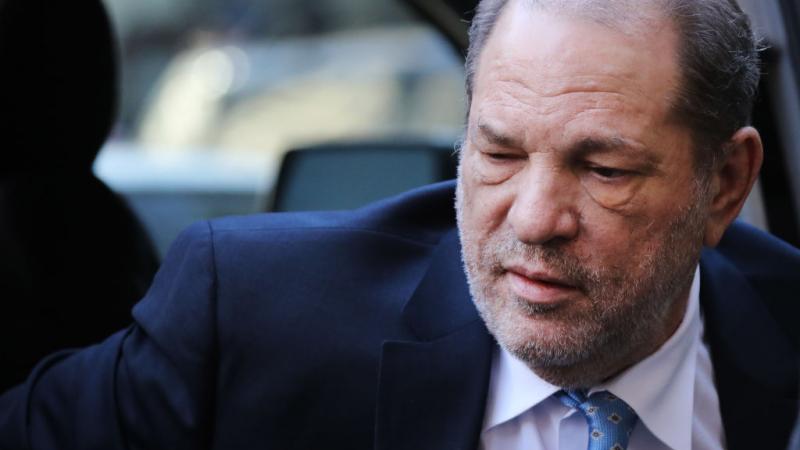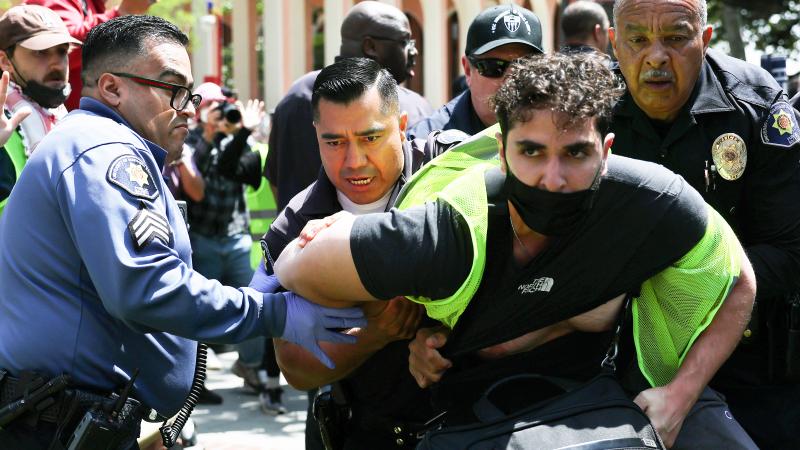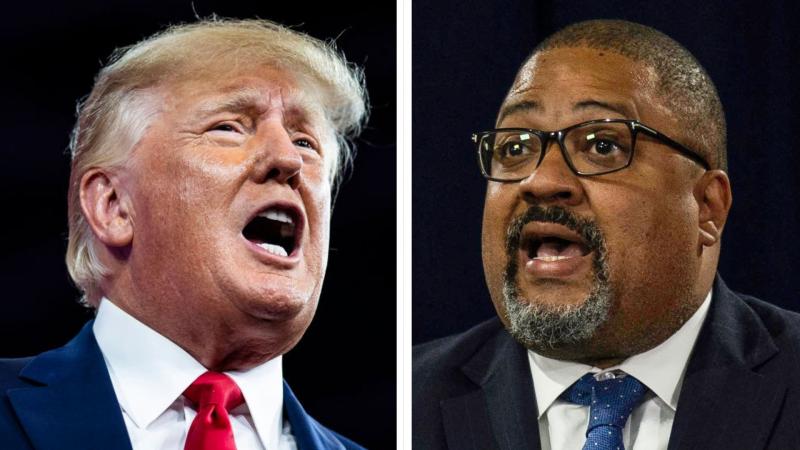As Georgia ballot harvesting probe starts, some election evidence has vanished already
Some big Georgia counties say they didn't retain surveillance video from absentee drop boxes in the 2020 election.
Since 1960, federal civil rights law has required state and local election officials to "retain and preserve" records relating to elections involving federal officeholders for 22 months after ballots are cast.
That would seem to be a good thing as Georgia Secretary of State Brad Raffensperger embarks on an investigation into whether third-party liberal activists in 2020 illegally gathered and delivered absentee ballots for voters — a practice known as harvesting that is outlawed in the Peach State.
But some of Georgia's largest counties tell Just the News that they no longer possess evidence that could be helpful to probing the harvesting allegations: video camera surveillance footage that monitored the drop boxes installed around Georgia to help voters cast ballots during the pandemic.
Election officials in several counties say the reason they discarded the footage is that the emergency rules issued by the State Elections Board said they only needed to keep the footage for 30 days after the election.
"We took direction from the Secretary of State and State Election Board, assuming they were not implementing a Rule contrary to law," said the Cobb County elections office, which acknowledged it deleted its video footage from 2020. "Drop boxes were established under an emergency order from the Governor."
Fulton County, home to Atlanta and the state's largest voting metropolis, said it too has long since deleted the files.
"I was informed that the videos were only required to be kept for 30 days post-election," spokeswoman Regina Waller said. "Please see bullet point number 5 of the attached SEB Rule regarding Elections in Georgia."
Dekalb County, a Democratic stronghold just north and west of Atlanta, told the Just the News it believes it may still have retained video footage and it would be available via open records request.
Earlier this week, Just the News reported that Georgia Secretary of State Brad Raffensperger has opened an investigation into an allegation of systematic ballot harvesting during the state's 2020 general election and subsequent U.S. Senate runoffs and may soon issue subpoenas to secure evidence.
The allegation is contained in a detailed complaint filed Nov. 30 by conservative voting integrity watchdog group True the Vote in which the organization claimed to have amassed evidence that scores of activists worked with nonprofit groups to collect and deliver thousands of absentee ballots, often during wee-hour operations, to temporary voting drop boxes distributed around the state during the pandemic.
The group alleged its evidence included video footage from surveillance cameras placed by counties outside the drop boxes as well as geolocation data for the cell phones of more than 200 activists seen on the tapes purportedly showing the dates and times of ballot drop-offs, according to documents reviewed by Just the News.
The group also said it interviewed a Georgia man who admitted he was paid thousands of dollars to harvest ballots in the Atlanta metropolitan area during the November election and Jan. 5 runoffs. State officials say obtaining the identity of that witness and securing his possible cooperation is a high priority for the investigation.
Raffensperger confirmed to Just the News he considers the allegations credible and has opened a probe and said the surveillance footage would be one piece of evidence his team could review.
"We did deploy drop boxes that were under 24/7 surveillance, and because they were then that really, you know, can indicate who dropped that information off, and we're really just going through that," he said.
The revelation that some of Georgia's largest counties destroyed the surveillance video means Raffensperger's team most likely will be limited to reviewing the footage that True the Vote or other groups obtained a year ago at the start of their investigations into harvesting. Officials estimate that footage covers about 15% of all of the drop boxes in the major urban areas around Atlanta.
True the Vote alerted Raffensperger's office back in November that at least three counties claimed not to have retained the video footage and asked his office to investigate whether that violated the federal preservation requirements from the Civil Rights Act of 1960 or the state requirement, which required the footage be preserved for at least 30 days or until all challenges to elections were resolved, which ever was later.
The group said in its complaint to Raffensperger's office that many counties were already missing the video footage in early 2021 even though some of the elections were still being contested in court, suggesting it violated both the state retention requirement and the federal requirement.
Attorney General Merrick Garland last year issued a memo reminding all election jurisdictions nationwide of their obligations to preserve federal election records for 22 months after the 2020 election.
The Garland memo stated: "The Civil Rights Act of 1960, now codified at 52 U.S.C. §§ 20701-20706, governs certain '[f]ederal election records.' Section 301 of the Act requires state and local election officials to 'retain and preserve' all records relating to any 'act requisite to voting' for twenty-two months after the conduct of 'any general, special, or primary election' at which citizens vote for 'President, Vice President, presidential elector, Member of the Senate, [or] Member of the House of Representatives,' 52 U.S.C. § 20701. The materials covered by Section 301 extend beyond 'papers' to include other 'records.' Jurisdictions must therefore also retain and preserve records created in digital or electronic form."
Waller, the Fulton County spokeswoman, said Georgia's largest county doesn't believe the federal law covers the drop box video surveillance. "Video of people dropping ballots into drop boxes are not election records and are governed by the SEB rule," she said.
But Phill Kline, the former Kansas attorney general and current head of the election integrity group The Amistad Project, said the federal law clearly would cover video showing the depositing of ballots at drop boxes.
"The preservation of all election materials is a crucial part of the civil rights act and the law's assurance of transparent elections to prevent fraud," he told Just the News. "Moreover, election officials promised the American people when they in an unprecedented fashion recklessly utilized hundreds of ballot drop boxes that appropriate security measures would be taken and fraud would be detected through video surveillance.
"To learn this promise has been breached, evidence has been destroyed and the law broken is astonishing. It is this lack of accountability and transparency by public officials, and not citizens questioning the manner in which the election was conducted, which is undermining faith in American elections."
Vernon Jones, a former Democrat state senator from Georgia who changed parties and is now running for governor as a Republican, said the revelation that some surveillance video has been destroyed shows state officials should have done a forensic audit like he requested and reviewed the tapes long ago.
"My calls for a forensic audit of all 159 counties have been ignored by Georgia's Governor & Secretary of State," he said. "More than ever before a forensic audit is needed before additional vital election records are destroyed."
State officials say, however, there is plenty of video footage and other evidence to work with and the most important mission at the start of the probe is to ascertain the identities of people who participated in the alleged harvesting.



